GENERAL SITUATION IN MEXICO

Weekly Review I February 19, 2025






Weekly Review I February 19, 2025







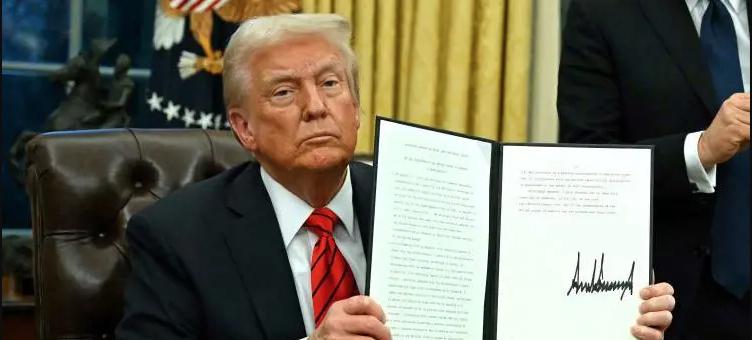
• Donald Trump imposed a 25% tariff on all steel and aluminium imports to the U.S., effective March 4, with no exemptions. This decision aims to strengthen domestic production, despite concerns from U.S. businesses and international partners.
• Canada and Mexico, major U.S. exporters, are particularly vulnerable, with industries such as automotive and construction at risk.
• Mexico, which exports over 80% of its steel and aluminium to the U.S., plans to negotiate, arguing that its exports do not harm the U.S. economy. This measure follows previous tariffs on Chinese goods, which prompted reciprocal tariffs from China.
SOURCE: BBC.COM
• Trump also announced the Reciprocal Tariffs, which means tariffs on other countries that match the duties they impose on American products.
• Mexico’s Secretary of Economy, Marcelo Ebrard, pointed out that Mexico exports more steel and aluminium to the U.S. than it imports, which has remained stable since 2015.
• He emphasized that the U.S. has a favourable trade balance with Mexico, selling $6.9 billion more than Mexico exports to the U.S., unlike other countries like Canada or China. Mexico aims to engage in dialogue with the U.S. to address the issue.
• The U.S. plans to designate eight Latin American criminal organizations as foreign terrorist groups. These include Mexico’s Sinaloa Cartel, Jalisco Nueva Generación Cartel, Cartel del Noreste, Familia Michoacana, and Cárteles Unidos, as well as Colombia’s Clan del Golfo, Venezuela’s Tren de Aragua, and the MS-13 gang.
• This move follows an executive order by Trump to target groups seen as national security threats.
• The designation allows for economic sanctions. Mexico has negotiated to prevent these labels, as the cartels are involved in fentanyl trafficking and migrant smuggling. U.S. officials aim to dismantle these groups and limit their influence.
SOURCE: NYTIMES.COM
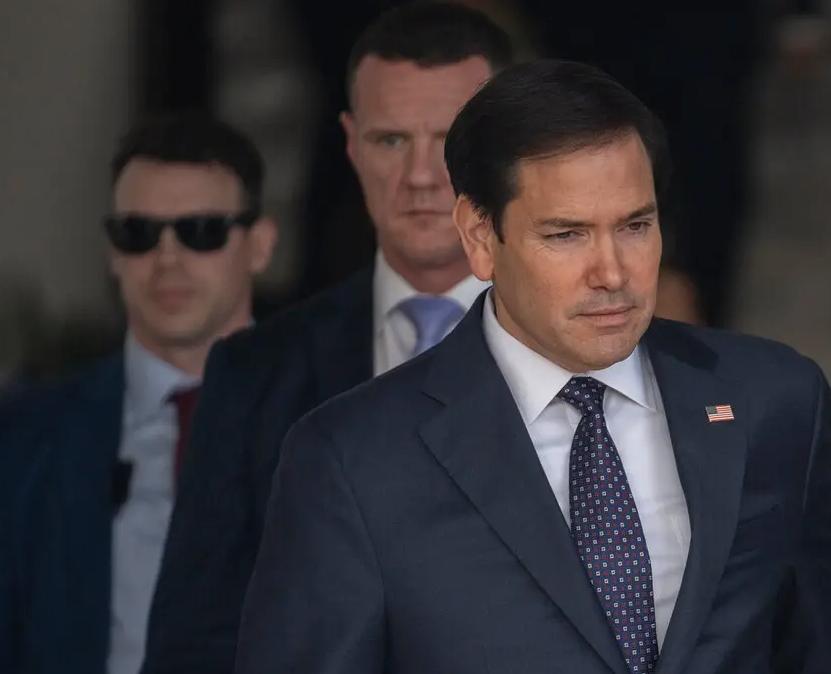
• President Claudia Sheinbaum affirmed that U.S. drone flights over Mexican territory are part of a long-standing collaboration with the U.S. government and are conducted legally.
• She emphasized that these operations have taken place for years and are part of coordinated security efforts between both nations.
• Additionally, Sheinbaum mentioned that Mexico is reviewing the legal framework governing international crime-fighting agencies operating in the country.
• The remarks come amid heightened tensions following former U.S. President Donald Trump’s renewed efforts to designate Mexican drug cartels as terrorist organizations in response to fentanyl trafficking.
• On Wednesday, the U.S. officially classified several cartels as global terrorist organizations, according to a Federal Register notice.
• A U.S. official clarified that the drone flights, conducted by agreement with Mexico, are unarmed and aimed at locating fentanyl production labs.
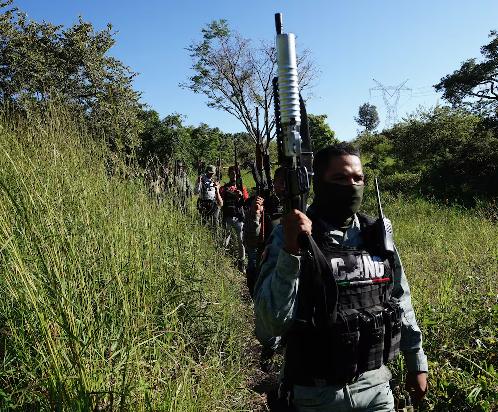
• Trump further escalated tensions by claiming that “Mexico is largely governed by the cartels,” justifying his administration’s hardline stance on organized crime.
• The situation unfolds as the U.S. nears a deadline to assess Mexico’s progress in combating drug trafficking, which could determine whether tariffs will be imposed.
• In response, Sheinbaum announced two upcoming high-level bilateral meetings. Economy Secretary Marcelo Ebrard is set to meet U.S.
• Commerce Secretary Howard Lutnick in Washington, while Security Chief Omar García Harfuch will present Mexico’s anti-crime strategy results.
• The final negotiation dates depend on the White House’s designation of representatives for these discussions.
SOURCE: ELPAIS.COM
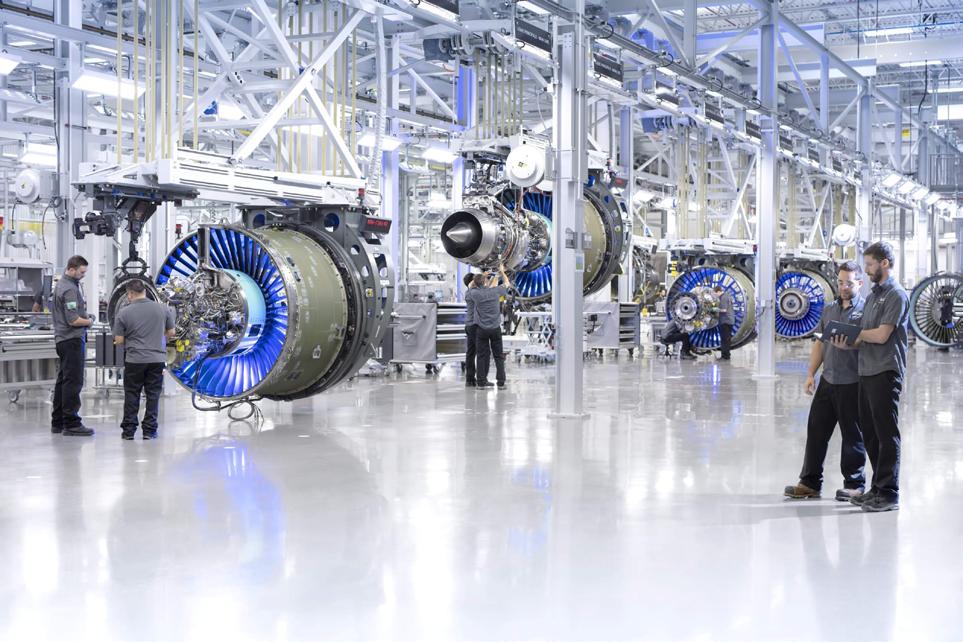
San Luis Potosí has emerged as a key hub for Mexico’s aerospace industry, hosting companies that manufacture aviation and space components. This sector generates high-quality jobs, attracts foreign investment, and benefits from the state’s strong infrastructure, including industrial parks and R&D centers. According to Salvador González Martínez, head of Sedeco, the industry has expanded alongside the automotive cluster, with companies like Impro experiencing signif-
icant growth. Foreign direct investment in the sector has surpassed $130 million, marking a 127.7% increase. Major firms such as Tighitco, Eaton, Aearo Technologies, and Diser Industrial contribute to the production of aerospace components, supporting over 4,100 jobs. With sustained development and ongoing investments, San Luis Potosí continues to strengthen its position in the aerospace sector, driving economic growth and technological advancement.
The Olinia project is advancing in Mexico with the goal of making electric cars affordable, starting at $4,444. Supported by the government of Claudia Sheinbaum and private investment, it aims to democratize sustainable mobility while fostering job creation and technological innovation. The installation of a production plant in Puebla and collaboration with institutions like BUAP, IPN, and Kutsari will strengthen the local automotive industry. Beyond increasing production, Olinia is driving technical training and infrastructure development, positioning Mexico as a potential leader in electromobility.
SOURCE: MEXICO NOW


The potential imposition of 25% tariffs on Mexican products by the U.S. is causing uncertainty in the automotive sector, with Nissan evaluating relocating its production if the measure takes effect. CEO Makoto Uchida emphasized the serious impact high tariffs could have on Nissan’s business, given its export of 320,000 vehicles annually from Mexico to the U.S. Amidst financial struggles, including a 98.4% drop in net profit and anticipated losses in 2025, Nissan announced a restructuring plan involving a 20% global production cut, job reductions, and shift eliminations in the U.S. Despite challenges, Nissan’s Mexico operations remain strong, reporting an 8% production increase and a 1.5% rise in domestic sales in early 2025.
SOURCE: MEXICO NOW


The Semiconductor Forum 2025 took place from February 17 to 19 in Tijuana, Mexico, as part of an initiative led by Semiconductor Alliance in collaboration with the federal and Baja California governments, along with global partners. This major event aimed to strengthen Mexico’s semiconductor workforce, attract investments, and position the country in the global industry. The forum featured key industry leaders, government officials, and experts who discussed topics such as nearshoring, the CHIPS Act, and the newly announced national semiconductor design center. Highlights included a graduation ceremony for a semiconductor training program led by Arizona State University, strategic panel discussions, and company visits to Qualcomm and Infineon. With Baja California’s existing infrastructure, the event supported the state’s ambition to become a leader in semiconductor manufacturing and innovation, aligning with Mexico’s goal of increasing semiconductor exports beyond the then-current $4.9 billion annually.
SOURCE: SAN DIEGO RED


The Sonora-Arizona Commission held its first board meeting of the year in Yuma, marking a milestone in cross-border collaboration. With the support of board members Julie Engel and Buna George, discussions focused on the agricultural industry, port investments, and strengthening business partnerships. Yuma County’s strategic role in Arizona-Mexico relations was highlighted through visits to the San Luis I and II ports of entry and a debate at the Border Health Regional Center. San Luis city officials, including Mayor Nieves Riedel and interim city administrator Jenny Torres, joined the meeting to share their vision for the region. The commission, established through Sonora’s representation in Arizona, aims to foster economic development by promoting collaborative projects, facilitating trade, and supporting Sonoran businesses in exporting to the U.S.
SOURCE: TRIBUNA DE SAN LUIS


CHIHUAHUA
Mario Enriquez assumed the presidency of the Chihuahua Aerospace Cluster, emphasizing collaboration between companies, government, and educational institutions to strengthen the sector. Ulises Fernández Gamboa, head of Chihuahua’s Ministry of Innovation and Economic Development, noted that the state accounts for nearly 20,000 aerospace jobs—onethird of the national total—and praised outgoing president Luis Manuel Azúa’s contributions. Enriquez outlined his focus on industrial promotion, supply chain optimization, local business support, and specialized training to maintain Chihuahua’s leadership in Mexico’s aerospace industry.
SOURCE: MEXICO NOW
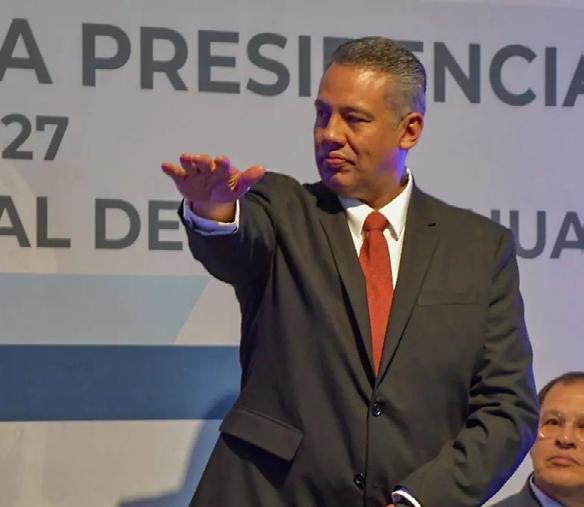

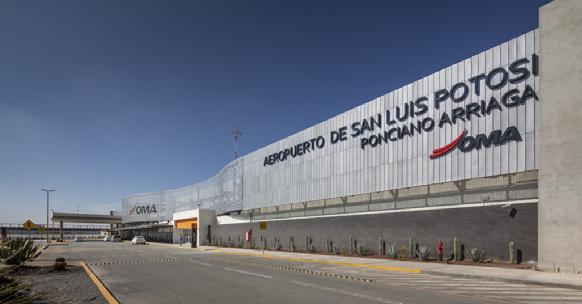

San Luis Potosí International Airport is expanding its air route network to enhance regional connectivity with the U.S. and key Mexican cities. In partnership with Volaris, three new routes to Dallas Fort Worth, Houston, and San Antonio will launch on July 5, 2025, operating on Airbus A220 aircraft. Additionally, TAR Aerolíneas will introduce flights to Querétaro and Monterrey on February 24, while Aeroméxico and Delta Airlines will begin daily flights to Atlanta on June 5. These expansions aim to boost mobility, attract investment, and strengthen economic and regional integration.
SOURCE: MEXICO INDUSTRY

Alejandro Hernández Fonseca, Deputy Secretary of Investment Attraction for Guanajuato’s Ministry of Economy, highlighted Japan as a key and reliable partner, contributing not only to economic growth but also to the region’s culture through values like discipline and innovation. Japan remains the top foreign investor in Guanajuato, with 145 projects generating nearly 48,000 direct jobs and over $8.9 billion in investment. Japanese companies are present across the state, including in Acámbaro, Valle de Santiago, and Comonfort, with major automakers like Toyota and Honda driving industry modernization. Takero Aoyama, Japan’s Consul General in León, emphasized the strong bilateral relations in economy, culture, and education, recalling Emperor Naruhito’s visits to Mexico and the 2005 economic partnership agreement. Since then, Japanese companies in Mexico have grown from 300 to 1,500, with 800 located in the Bajío region.
SOURCE: MEXICO INDUSTRY


The Mexico City government has announced an investment of 1.39 billion pesos in 16 key water infrastructure projects for 2025. These initiatives aim to enhance the city’s water supply, drainage, treatment, and reuse systems. Among the major projects is the construction of purification and bottling plants under the “Agua Bienestar” program, providing 20-liter water bottles at a low cost. Additional plans include building the La Montada purification plant, restoring water bodies through dredging, and upgrading wastewater treatment facilities. The government will also modernize drainage systems with telemetry sensors, renovate absorption wells, and improve the automation of potable water infrastructure. This investment is part of a broader 15-billion-peso budget for water management, marking a 13.1% increase from 2024. Authorities expect these efforts to enhance water distribution and quality, benefiting thousands of residents across Mexico City.
SOURCE: CONTRARÉPLICA

Clara Brugada, Mexico City’s Head of Government, unveiled a comprehensive plan to enhance public markets, following the mobilization of market vendors. The plan includes a 240-million-peso budget for maintenance and security, with specific actions such as structural and safety upgrades, reinforced emergency protocols, and increased surveillance with cameras linked to the C5 command center. The initiative also features the “Mercomuna” program, which allocates over 1 billion pesos in vouchers for over 300,000 families and small businesses. Additionally, market vendors will receive legal support through registration certificates and simplified procedures. Brugada highlighted the importance of public markets as an economic engine and aims to boost their social value. Other measures include fostering the circular economy, promoting markets as cultural hubs, and improving access to childcare and elder care services nearby.
SOURCE: LA PRENSA


The Metropolitan Automotive Cluster, comprising Mexico City, Hidalgo, and the State of Mexico, represents over 70,000 jobs and 7.8% of Mexico’s total auto parts production. As the region sees growing investments from companies like JAC Motors, Dina, and FAW, the cluster faces uncertainties due to potential tariffs and international trade tensions. The cluster, with a focus on both traditional and electric vehicle production, is working on a risk mitigation plan. It emphasizes strengthening regional competitiveness through collaboration with local and federal governments, promoting investment in sectors like technology, renewables, and advanced manufacturing. Elisa Crespo, the cluster’s executive president, stresses the importance of diversifying markets and preparing for any challenges, particularly in light of the Mexico-United States-Canada Agreement (T-MEC). The sector aims to maintain production and attract investments, ensuring long-term economic stability despite potential trade disruptions.
SOURCE: EL ECONOMISTA

The President of Banco Santander, Ana Patricia Botín, announced this Tuesday an investment of over $2 billion in Mexico over the next three years, along with the launch of Openbank, the group’s fully digital bank, in the country.
The Indian company Imperial Auto Fluid Transmission Products has inaugurated its first plant in Mexico and Latin America in Ramos Arizpe, Coahuila, with an investment of 21 million dollars and the creation of 400 direct jobs.
BMTS Technology has announced the expansion of its plant in Ramos Arizpe with a $25 million investment, increasing its production capacity by 40%. This expansion will create 400 new direct jobs in the southeastern region of Coahuila. The groundbreaking ceremony for the expansion is set to take place in February 2025 at the Vynmsa Industrial Park.
Taiwanese company EOI Electronics held the groundbreaking ceremony for its new plant in Querétaro. Specializing in the manufacturing of original LED components for automobiles, as well as lighting and energy-saving modules, the company will invest $70 million over the next five to seven years, creating 800 jobs.
With a $20.1 million investment and the creation of 500 jobs, EGO Componentes Electrónicos has inaugurated its first plant in Guanajuato, selecting Apaseo el Grande as its location. The facility specializes in manufacturing electronic controls.
SOURCE: CLUSTER INDUSTRIAL

• BILL TO AMEND ARTICLE 123 OF THE POLITICAL CONSTITUTION OF THE UNITED MEXICAN STATES TO REDUCE THE WORKING HOURS
Presented by: Parliamentary Group of Movimiento Ciudadano
Objective: Ensures that for every five days of work, employees are entitled to at least two days of rest with full salary.
Status: Published in the Parliamentary Gazette (2025-02-12)
• BILL TO AMEND THE FEDERAL LABOR LAW AND THE FEDERAL LAW OF WORKERS IN STATE SERVICE TO INCREASE PATERNITY LEAVE
Presented by: Dip. Napoleón Gómez Urrutia (Plur - MORENA)
Objective: Mandates employers to grant 20 working days of paid paternity leave to male workers following the birth of their child or the adoption of an infant. In cases of post-birth complications affecting the mother or newborn, leave may be extended to 30 days upon submission of a medical certificate.
Status: Published in the Parliamentary Gazette (2025-02-11)

• BILL TO AMEND ARTICLES 24 AND 25 OF THE FEDERAL LABOR LAW REGARDING TRANSLATION OF EMPLOYMENT CONTRACTS
Presented by: Dip. Napoleón Gómez Urrutia (Plur - MORENA)
Objective: Require that employment conditions be documented in writing when no applicable collective contracts exist, with copies for both parties. Mandate that, upon request, employers must provide a translation of the employment terms into the indigenous language of workers belonging to indigenous communities.
Status: Published in the Parliamentary Gazette (2025-02-11)

• BILL TO AMEND ARTICLES 132 AND 133 OF THE FEDERAL LABOR LAW REGARDING THE LABOR INCLUSION OF OLDER ADULTS
Presented by: Dip. Napoleón Gómez Urrutia (Plur - MORENA)
Objective: Mandate employers to implement actions and programs that promote the hiring of older adults according to their profession, trade, or skills, with restrictions only based on officially declared physical or mental limitations. Prohibit employers from refusing to hire older adults and establish that companies with 20 or more employees must ensure at least 5% of their workforce consists of older adults.
Status: Published in the Parliamentary Gazette (2025-02-11)
• BILL TO ADD ARTICLE 11 BIS TO THE FOREIGN TRADE LAW
Presented by: Sen. Waldo Fernández González (NL - PVEM)
Objective: To establish that, in order to improve the identification and logistics of value chains within the trade region of the Mexico-United States-Canada Agreement (USMCA), the Ministry of Economy, through the Foreign Trade Commission, will authorize and grant the “Made in USMCA” seal to products that meet the requirements set forth in the applicable Rules of Origin of the Treaty, certifying them as goods produced among the three member countries.
Status: Published in the Parliamentary Gazette (2025-02-13)
• AGREEMENT FOR THE PREVENTION OF CYBER FRAUD
Presented by: Sen. Miguel Márquez Márquez (Gto - PAN)
Objective: Urges the Federal Consumer Protection Agency and the National Commission for the Protection and Defense of Financial Services Users to strengthen awareness campaigns for the prevention of cyber fraud, within their respective areas of competence.
Status: Published in the Parliamentary Gazette (2025-02-13)
• BILL TO AMEND ARTICLE 21 OF THE FEDERATION’S REVENUE LAW FOR THE 2025 FISCAL YEAR
Presented by: Dip. Yericó Abramo Masso (CoahPRI)
Objective: Reduce the annual withholding tax rate on interest income for the 2025 fiscal year, as referenced in Articles 54 and 135 of the Income Tax Law, from 0.50% to 0.15%.
Status: Published in the Parliamentary Gazette (2025-02-11)
• BILL TO AMEND ARTICLE 50 OF THE FEDERAL ROADS, BRIDGES, AND MOTOR TRANSPORTATION LAW
Presented by: Dip. María Isidra De la Luz Rivas (Plur - PT)
Objective: Prohibits the circulation of double-trailer freight transport and vehicles exceeding a maximum load of 65 tons and a length of 27 meters.
Status: Published in the Parliamentary Gazette (2025-02-11)
• BILL TO AMEND THE FEDERAL LAW ON THE PROTECTION OF PERSONAL DATA HELD BY PRIVATE PARTIES
Presented by: Dip. Manuel de Jesús Baldenebro Arredondo (Son - MORENA)
Objective: Incorporates new concepts related to digital tracking and web identification files, including browser fingerprinting, tracking pixels, and session management technologies. Requires transparency policies for websites using such techniques, including explicit user consent, granular preference management, and a ban on deceptive design practices. Updates references from minimum wage to the Unit of Measurement and Updating (UMA). Ensures that resolutions by the Institute consider the impact on user privacy.
Status: Published in the Parliamentary Gazette (2025-02-11)

As companies seek to enhance efficiency and reduce costs, Mexico has become a prime location for nearshoring shared service centers. With a young, tech-savvy workforce, strong infrastructure, and strategic proximity to the U.S., Mexico offers unparalleled advantages for international companies. Major corporations like IBM, Accenture, and Oracle have already established operations, leveraging Mexico’s talent pool and economic incentives.
Prodensa has been at the forefront of this movement, helping businesses establish and scale operations with expertise in workforce recruitment and site selection. Additionally, Mexico’s IMMEX program provides tax advantages for service exports, making it even more attractive for companies looking to optimize costs.
Explore how nearshoring to Mexico can drive your business success. Read the full article on our blog.

As nearshoring accelerates, the U.S.-Mexico labor market is undergoing a major transformation. From shifting migration patterns and rising demand for specialized talent to AI-driven workforce decisions and evolving labor regulations, businesses must adapt to stay competitive.
Key trends shaping the future of work include:
• Cross-Border Talent Flow – A shift in migration patterns is expanding Mexico’s talent pool for nearshoring industries.
• Specialized Workforce Demand – Nearshoring is increasing the need for bilingual professionals and compliance specialists.
• AI & Remote Work – AI-driven roles are transforming recruitment, HR, and supply chain management.
• Regulatory Compliance – Evolving labor policies in Mexico and the U.S. require businesses to stay ahead of new workforce regulations.
With strategic workforce planning and a focus on digital transformation, companies can leverage nearshoring to drive long-term success.